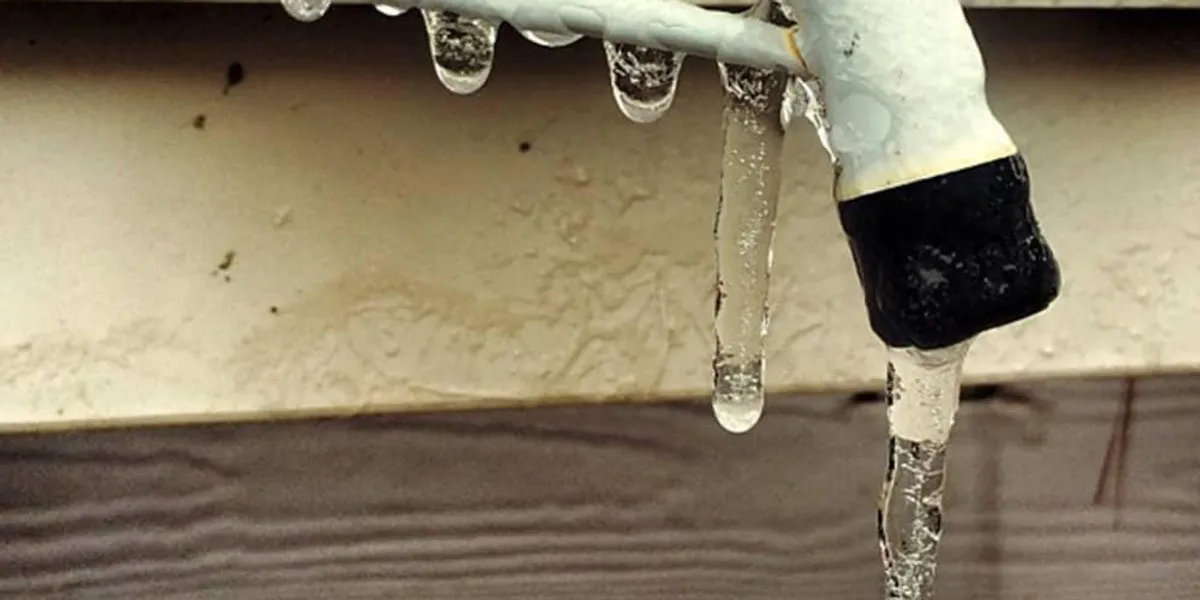How to Protect Pipes from Cold Weather: Specialist Tips
How to Protect Pipes from Cold Weather: Specialist Tips
Blog Article
We've found this article relating to Winter Plumbing Precautions: Preventing Frozen Pipes listed below on the web and accepted it made sense to share it with you here.

Winter can wreak havoc on your plumbing, particularly by freezing pipes. Below's exactly how to avoid it from occurring and what to do if it does.
Intro
As temperature levels drop, the threat of frozen pipes boosts, possibly resulting in costly fixings and water damages. Recognizing just how to avoid frozen pipelines is essential for homeowners in chilly climates.
Prevention Tips
Shielding prone pipelines
Cover pipes in insulation sleeves or utilize heat tape to secure them from freezing temperatures. Focus on pipelines in unheated or outside areas of the home.
Home heating methods
Maintain interior rooms appropriately warmed, particularly locations with pipes. Open cupboard doors to permit cozy air to circulate around pipes under sinks.
How to recognize icy pipes
Try to find reduced water flow from taps, uncommon odors or sounds from pipelines, and visible frost on subjected pipes.
Long-Term Solutions
Architectural modifications
Think about rerouting pipelines away from exterior wall surfaces or unheated areas. Include added insulation to attic rooms, cellars, and crawl spaces.
Updating insulation
Invest in premium insulation for pipes, attic rooms, and walls. Proper insulation helps keep constant temperatures and decreases the risk of frozen pipelines.
Safeguarding Exterior Pipes
Garden hoses and outside taps
Disconnect and drain pipes yard pipes prior to winter. Install frost-proof faucets or cover outdoor taps with protected caps.
Recognizing Frozen Pipelines
What causes pipelines to freeze?
Pipelines freeze when revealed to temperature levels listed below 32 ° F (0 ° C) for extended durations. As water inside the pipes ices up, it increases, taxing the pipe walls and potentially creating them to rupture.
Dangers and problems
Icy pipes can result in supply of water interruptions, home damage, and pricey repair services. Ruptured pipes can flood homes and create substantial architectural damage.
Indications of Frozen Pipes
Recognizing icy pipelines early can stop them from bursting.
What to Do If Your Pipes Freeze
Immediate activities to take
If you suspect frozen pipelines, keep taps open up to ease stress as the ice thaws. Use a hairdryer or towels taken in hot water to thaw pipelines gradually.
Conclusion
Avoiding frozen pipelines requires proactive actions and quick feedbacks. By comprehending the reasons, indicators, and safety nets, property owners can safeguard their plumbing throughout winter.
Helpful Tips to Prevent Frozen Pipes this Winter
UNDERSTANDING THE BASICS: WHY PIPES FREEZE AND WHY IT’S A PROBLEM
Water freezing inside pipes is common during the winter months, but understanding why pipes freeze, and the potential problems it can cause is crucial in preventing such incidents. This section will delve into the basics of why pipes freeze and the associated problems that may arise.
THE SCIENCE BEHIND FROZEN PIPES
When water reaches freezing temperatures, it undergoes a physical transformation and solidifies into ice. This expansion of water as it freezes is the primary reason pipes can burst. As the water inside the pipe freezes, it expands, creating immense pressure on the walls. If the pressure becomes too great, the pipe can crack or rupture, leading to leaks and water damage.
FACTORS THAT CONTRIBUTE TO PIPE FREEZING
Low Temperatures: Extremely cold weather, especially below freezing, increases the risk of pipes freezing. Uninsulated or Poorly Insulated Pipes: Pipes located in unheated areas, such as basements, crawl spaces, or attics, are more prone to freezing. Insufficient insulation or lack of insulation altogether exacerbates the problem. Exterior Wall Exposure: Pipes running along exterior walls are susceptible to freezing as they encounter colder temperatures outside. Lack of Heating or Temperature Regulation: Inadequate heating or inconsistent temperature control in your home can contribute to frozen pipes. PROBLEMS CAUSED BY FROZEN PIPES
- Pipe Bursting: As mentioned earlier, the expansion of water as it freezes can cause pipes to burst, resulting in significant water damage.
- Water Damage: When pipes burst, it can lead to flooding and water damage to your property, including walls, ceilings, flooring, and personal belongings.
- Structural Damage: Prolonged exposure to water from burst pipes can compromise the structural integrity of your home, leading to costly repairs.
- Mold and Mildew Growth: Excess moisture from water damage can create a favorable environment for mold and mildew growth, posing health risks to occupants.
- Disrupted Water Supply: Frozen pipes can also result in a complete or partial loss of water supply until the issue is resolved.
WHY CERTAIN PIPES ARE MORE PRONE TO FREEZING
- Location: Pipes located in unheated or poorly insulated areas, such as basements, crawl spaces, attics, or exterior walls, are at higher risk of freezing.
- Exterior Pipes: Outdoor pipes, such as those used for irrigation or exposed plumbing, are particularly vulnerable to freezing as they are directly exposed to the elements.
- Supply Lines: Pipes that carry water from the main water supply into your home, including the main water line, are critical to protect as freezing in these lines can affect your entire plumbing system.
- Underground Pipes: Pipes buried underground, such as those connected to sprinkler systems or outdoor faucets, can be susceptible to freezing if not properly insulated.
https://busybusy.com/blog/helpful-tips-to-prevent-frozen-pipes-this-winter/

Do you appreciate reading up on Preventing and dealing with frozen pipes? Try to leave a remark down below. We will be pleased to know your thinking about this write up. Hoping that you visit us again later on. Are you aware of another individual who is curious about the topic? Feel free to share it. Thank you for your time invested reading it.
Book An Appointment Report this page